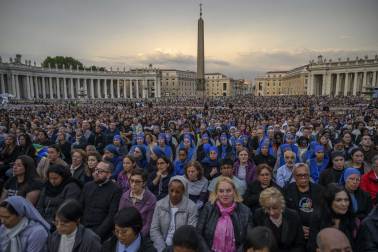Washington, DC
We were an odd sight to the young crowd in the pool hall late on a Sunday night. A couple of middle-aged family guys don’t exactly blend in, at least not in Adams Morgan, a hip young neighbourhood in Washington, DC – especially when one of them is Mel Gibson. It was the night before the screening of Gibson’s controversial film about the Passion of Christ. The man better known as Mad Max, or William Wallace, was relaxing in the pool hall after his long flight from Los Angeles.
There was little relaxing elsewhere in the room, however. Women hoping for an autograph, a game of darts or simply to catch the star’s eye began a slow migration towards us. Unfailingly polite, and dressed in jeans and a denim shirt, Gibson kept a careful distance from over-zealous female fans looking for something more intimate than darts or autographs. Having given up drinking and smoking (he has promised to send me his unsmoked Cubans), he makes a strict point of avoiding other carnal temptations.
The saints’ medals around his neck jangled as he hit every shot with full force, not caring where the ball went. His recklessness cost him that night; I beat him soundly, four games to two, and I haven’t played pool for years. Gibson has produced and directed The Passion with a similar disregard for consequences. And for costs: he has sunk $25 million of his own money into the venture, because he couldn’t get Hollywood backing.
The film, which is not being released until next year, has caused bitterness and anger among Jewish groups. Gibson has been labelled an anti-Semite for his portrayal, based upon the Gospels, of the role of the Jews in the trial and execution of Jesus. Some newspaper articles have pointed out that his 92-year-old father is a Holocaust denier.






Comments
Join the debate for just £1 a month
Be part of the conversation with other Spectator readers by getting your first three months for £3.
UNLOCK ACCESS Just £1 a monthAlready a subscriber? Log in